#Grimgar of Fantasy and Ash
Text

リクエスト by COCOball [Twitter/X]
※Illustration shared with permission from the artist. If you like this artwork please support the artist by visiting the source.
#merry#hiiragi shinoa#owari no seraph#seraph of the end#hai to gensou no grimgar#grimgar of fantasy and ash#cocoball#posted art
77 notes
·
View notes
Text

Grimgar of Fantasy and Ash Vol.20 (light novel)
5 notes
·
View notes
Text
Just finished watching grimgar. So sad there's no season 2
3 notes
·
View notes
Text
Anime I've Finished in 2023
Part 2
11. The Deer King
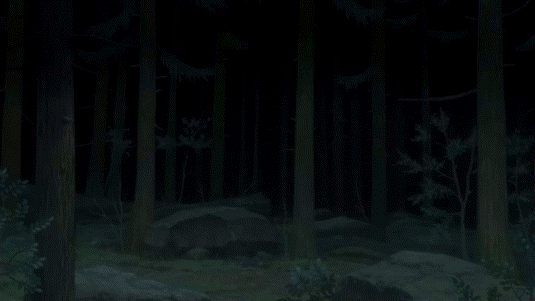
12. Howl's Moving Castle

13. Your Name

14. Grimgar: Ashes and Illusions

15. Moriarty the Patriot Part 1
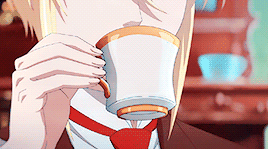
16. Mortiary the Patriot Part 2
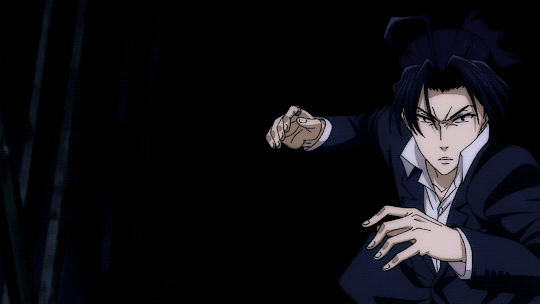
17. Mortiary the Patriot OVA

18. JJBA Diamond is Unbreakable
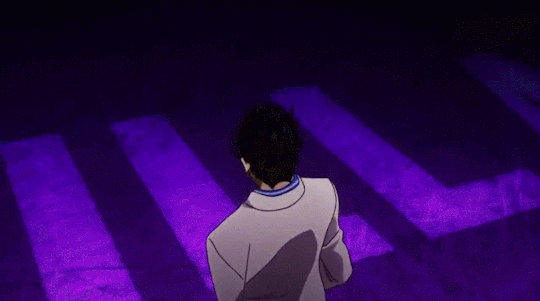
19. Junji Ito: Maniac

20. Trigun Stampede
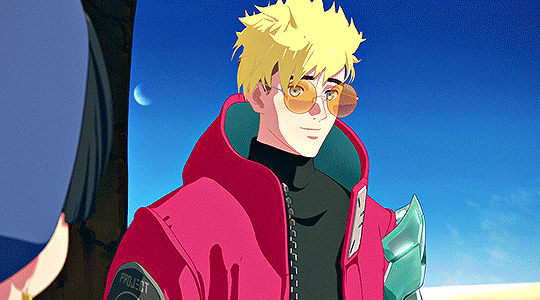
#anime#the deer king#howls moving castle#your name#grimgar of fantasy and ash#moriarty the patriot#jojo's bizarre adventure#diamond is unbreakable#junji ito maniac#trigun stampede
3 notes
·
View notes
Audio
“Crisp Morning”
by: (K)NoW_NAME (R·O·N)
from: Grimgar of Fantasy and Ash
7 notes
·
View notes
Text
GOD im thinking abt grimar and manato again and it just fucks me up so much how little we know about him, we don't know if he ever wanted to be a leader, we don't know if he even fucking liked the rest of the cast, he could have despised them for all we know, because for how much he helps them and sacrifices for them and checks on them, he shouldered every burden alone and unsupported because he was too worried about everyone else. he never lets on if he's handling it well or even wanted to be leader, he just kept up the prefect leader charade until it literally killed him.
#it is very unlikely that he hated any of them but honestly theres no way we can know#unless something happens later in the books like they find his journal or anything#but judging from his frequent trips to the tavern the way he says that he 'thinks he likes drinking' and the way everyone else who was at --#-- the way renji vaguely refers to him as a good person make me think its very possible he was fucking miserable#grimgar of fantasy and ash#hai to gensou no grimgar
3 notes
·
View notes
Text

12 notes
·
View notes
Text

Grimgar of Fantasy and Ash / episode 2 / anime gifs
9 notes
·
View notes
Text
A Matter of Style and Skill (Re: Zero, Sword Art Online, Grimgar, Isekai Uncle)
So, I watched a lot of anime lately, especially around the Isekai ("from another world") and LitRPG (inside a game) topics. I like fantasy stories, and I like those genres. Last one I watched was Grimgar - Ashes and Illusions (novel title: Grimgar of Fantasy and Ash), a series that lulls you by a more subdued, subtle pace and then crushes your heart... I love it! It was very well executed, and where the art style veered into water colors, that was just beautiful. Sadly, there's only one season and it's unlikely there'd ever be a second.
For each of the four shows that stole my heart over the last few months - Sword Art Online (SAO), Uncle from Another World, Re: Zero - Starting life in Another World, and Grimgar of Fantasy and Ash - I grabbed the original material, be they light novels or manga (in Uncle's case) to read on. For Uncle I actually grabbed the whole manga run because it was so delightful to read. By now it should also be clear that I grabbed everything I could possibly read from Sword Art Online and related series.
The experience of grabbing the original material ranged from smooth to jarring:
Uncle is almost the same in the manga from which the anime clearly takes all its style, cues, and humor. What I noticed is that the anime overdoes the "misleading situations" that are so common to this comic. Still, very faithful, absolutely smooth transition, both are a delight. If you like one, you are bound to like the other.
SAO was a bit of a surprise there. If you read the earlier materials you will start to notice how the story has been rewritten for the anime adaptation. If your starting point is the Aria of a Starless Night movie, you'd find that Mito only exists in the Movie and Argo plays an actual role in the story, nya. In general, the anime adaptations tend to introduce inconsistencies that don't exist the same in the story - and the novels are a delight to read, beating the movies or anime series by far. There's a few moments (mostly Liz/Rika) where the anime does better than the book and feels more consistent. The transition between books and screen is not the smoothest but absolutely worth it.
I've just started to read Grimgar and can already tell that the anime chose to rewrite some characters for the better, or to put it the other way round: Ranta is even worse in the novel (sigh) and Yume is a complete, utter ditz. For shame! So that was a disappointment. But we'll talk more about Grimgar in a moment.
At the bottom ranks Re: Zero, which is odd, right? Re: Zero is a fantastic multi-season anime, engaging, great characters, dramatic, as full of suffering and existential despair as Steins;Gate (the anime), it reels you into its world like SAO does, and it got an unique premise that it executes well. So, picking up volume 16 of the light novels seemed like a no-brainer... For reasons I will also explain I haven't come very far yet.
So kindly follow me on another tangent...
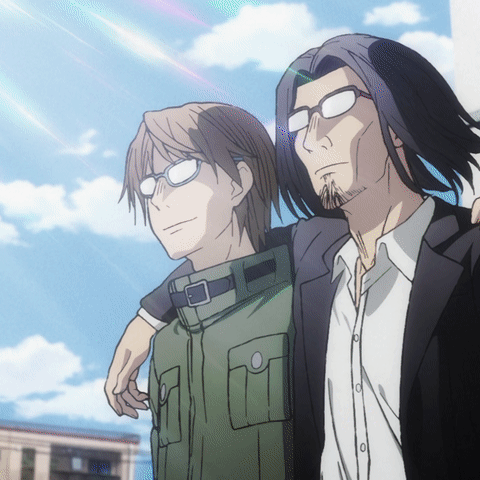
Characters, characters, and their mouths
What Grimgar does well in the anime adaptation is focus on its ensemble cast. You really get to know the group... in some ways. It becomes easily apparent for example that Ranta is an unbearable blaggard (which makes it almost funny that he's some sort of black/dread knight if you think about the word root) and sexist foul mouth. So much so it would be easily understandable if anyone left the series right there once he opens his mouth for any considerable length of time. The fact, however, that he's an unlikable character that nobody really gets along with is well established even in the short season this anime got. It's unclear why he choses to behave this way as he clearly knows better underneath, at least one tends to notice so in the final episodes.
What I failed to notice that much in the anime and what became immediately apparent within the first chapter of Volume 3 of the light novel is that Yume is an absolute ditz. Mind you, I watch with subtitles (and German ones in this case, no other available) and the translation hides the fact how Yume speaks ... a lot. So I was surprised by the English light novel and how every sentence basically uses "Yume" instead of "I." I revisited the anime and indeed this is the case in the spoken dialogue. You could say the translation of the book is rather on the nose (and it is). But on the other hand, the dialogue as presented in the subtitles obfuscates a lot about the character this way.
Now, this is one aspect of it. Volume 3 starts with yet another fight within the group, or better - one of these typical verbal altercations triggered by Ranta "who goes there." In his typical style of going for an immature confrontation he suggests to Yume (wait for it) that her breasts would get bigger (already groaning) if she squeezed them (this boy needs to suffer). A suggestion that Yume actually considers!! As I said, had this happened in the anime (which stops beforehand) there would have been no doubt that this character is as ditzy as they get... and that I would have stopped watching.
You see, Yume here is presented as somebody where I don't believe they're stupid as such but... she does seem clueless, naive, innocent even in some ways, I guess. Somewhere between naive and ignorant about some topics, maybe? But this I only really noticed once I read the light novel (volume 3). Within a few pages. (After the first battle is over.) It's on the nose, it's right in your face, you can't miss it. Whereas in the anime Yume might come across like her name suggests - a dreamer. She tends to babble on with what is on her mind in a way that doesn't necessarily imply she's a deep thinker, but most of the time we see her (eventually, like all of them) as capable, and her personally as dedicated, daring, fearless. Not in a "I suppress my fear" way. Outright without fear. (Making her the perfect scout. If you can instill some caution in her...)
Since I have not read the first two volumes I don't know for sure, but I get already the feeling that Yume would have come across as a ditz more than in the anime. And frankly, I enjoy Anime Yume way more than the other one.
Regarding the quality of the translation I have to wonder. The language is more like the terse style the Japanese supposedly speak. (Japanese sentences omit pretty much anything you can derive from context.) I found a mistake already that's apparent from the English ("it" instead of "he," misplacing the subject of the sentence altogether). I also think that rendering "メリイ" as "Merry" is a mistake by the translator, but maybe it isn't. (Could be "word of God" as well.) You can read this as "Mary" or as "Merry" as far as I know, the original "Merii" allows for both given how Japanese transliterates words in Katakana, emulating English by similar-sounding syllables (like "Smith" turns to "Sumisu" and can sound surprisingly similar). I think the makers of the Anime or at least the subtitles made the right call to call her "Mary." But I won't die on that hill.
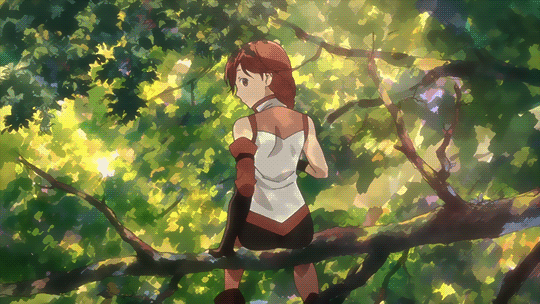
Given the way characters were portrayed in the anime, I was definitely shipping Yume and Haruhiro, but I knew that wouldn't happen as soon as Mary/Merry called Haruhiro by a nickname, almost as first sign she connected with the group. It becomes pretty obvious after that. But before it was Yume who reached out to Haruhiro, and while "first past the gate" doesn't always apply, the two seemed to be both kind-hearted, complemented well in role (both stealth/scout style characters)... Well, and there were only two girls to begin with, LOL! (And later there were hints of shipping Ranta with Yume, and I sure hope that doesn't happen and stays one-sided. That was just insulting.)
The anime does a great job of depicting the group dynamics, their bickering, their attempts at dealing with their situation, the slow burn in general, but also in depicting the world and how they adapt to it. What I wasn't prepared for is the amount of changes the anime really must have done!
I had to stop reading volume 3 of the series yesterday. Almost all dialogue has Ranta screeching over it, you get pages of dialogue full of his BS to just get what's going on. If the dialogue was pleasing to read, fine. But it's just utterly annoying. Moguzo, who is just the quiet type in the anime, gets enlisted into Ranta's schemes way too easily. Both Haruhiro and Merry have the habit of correcting Yume - but while in the anime it seemed like that's done with a bit of sigh, here they come across as annoying sticklers. Haruhiro's inner monologue is an endless deluge of self-depreciation and reasons why he shouldn't talk to others. Oh, and when he described Merry as "a goddess" in his mind, it gave me a virtual gag reflex. Reading his stream of consciousness makes it also clear that he's way less nice than you might think - he fantasizes about backstabbing Ranta. Understandable, yes. But less likable.
All in all the anime chose to downplay the traits assigned to them by the author. You could see that's the same character when you read the book, no major change to the contrary. But bad bits have been toned down, made less obvious, or reduced to a more acceptable manner.
So in the end, the Grimgar book actually delivers dialogue and characters, but the end result leaves a lot to be desired. After reading the novel I feel like somebody who projected on these characters, seeing them in a more positive light because I saw less of them than in the books. In this sense it was a disillusionment of my own projection. The anime, however, is quite okay.
Prose from Pros
Where Grimgar does okay is the prose itself. You can read it, it's not the best, but you can go with the flow to follow Haruhiro's thoughts which speaks of a modicum of balance in the writing itself.
The first light novel I ever picked up was Sword Art Online Progressive Volume 1, and Reki Kawahara's writing style took me in. Not like Ben Aaronovitch (Rivers of London) who completely had me after one paragraph with his wit and execution. But Kawahara is comfortable to read, for reasons I will come to further down. He crafts good prose.
The translation of Re: Zero suggests that its author doesn't. I mean, translation always loses something of the original writer, but I'm assuming a translator is charged with translating with what is there, they don't tend to add or remove stuff. A sentence might be broken into several where necessary, or they might be combined, but overall you would expect the same amount of sentences even if one language is more verbose and another is more terse. What a translator would certainly not do is invent descriptions that are not there in the original - that would make them co-authors or editors.
And in Re: Zero's case it shows!
It had really high hopes for this. Realizing that the plot continued past what we have in the anime felt like getting a third season. I would get to read into another series of light novels! Re: Zero the anime was hard to watch (because it's emotionally challenging) but you could tell the source material had been carefully crafted. So I came with high expectations to this one, expecting a masterful author.
I had best braced myself.
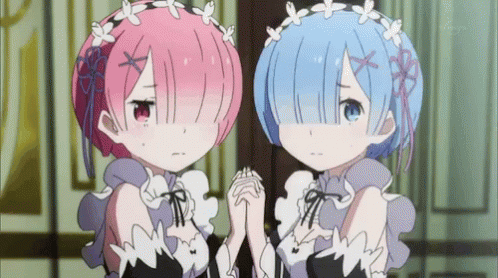
Practically the moment I started reading my heart dropped. And I have barely picked it up since. There they are, the characters I cared about, right? On to have more adventures. And I can't muster the willingness to go... because it doesn't read good.
The reason is hard to put into words, but I'll try my best. There's for one a bad balance between description and dialogue, and what would have fitted well in the description of the scene ends up badly shoved into the dialogue. There's also no good separation between dialogue and conversation and inner thoughts. It just reads like a mish mash. But it's probably better to compare it with its opposite.
We're at the beginning of another volume, so if that were a Kawahara book he would in some form recap where we are and how we came to be there. But not as a mere blob of exposition - it would be weaved into the thoughts and the dialogue, but also appear as some straight exposition. If a character was musing about something, it would often sit in its own paragraph(s), and dialogue (or action) would continue after it concluded. This sometimes leaves you with a feeling that way too much time passed, but it gives you the chance to digest the thought process of the protagonist and understand the reasons behind their actions.
Kawahara will ensure that you as reader are on the same page as him as the author when setting a scene. He conveys the images he wants you to see, he conveys the information he wants you to know, and he's truly masterful at crafting the things that weren't said. Oh, his dialogue is good, no doubt. But he's at his very best when interrupting dialogue, characters biting their tongue, and at implying things you as the reader have to read between the lines. That's skill. But not in an universal skill, more of a particular set of skills that contribute to why his books are such a joy to read. He crafts good prose, dialogue, he sets scenes properly, he never leaves you behind. He sometimes overdoes the reminders, but he communicates to the reader everything needed to follow along and adds many charming details. His characters not only speak, their actions speak as well, especially small ones, details, everything.
When Re: Zero #16 reintroduces Mimi in the second scene, I can barely follow along. I can picture the scene only because I saw the anime and remembered her from the hints given. But I have to pause the reading to do so. Then I can work my way backwards to what has transpired in the scene. The way the scene is described obscures what is going on - we are told the character has figured it out, but we can't. We have to wait for him to say it. It seems like everything has to be said aloud here.
And what is said is mostly just chaining up dialogue from which alone we have to infer the mood of the speaker. There's no description of the speaker, no laying out the part we're meant to picture, no description of their voice or tone. The dialogue just comes at us, description might follow. Frankly, as prose this is unpleasant to read. It quickly soured on me.
It's a less obvious example for what most people would describe a book as "horribly written." And I bet this isn't the translator's fault. They're not meant to reorder sentences or add details. This prose lacks craft in the source as well I would assume. Grimgar definitely does better, it reads normal. The cringe comes from the characters. And it can hold no candle to anything Kawahara ever wrote - when it comes to crafting the prose itself.
The Plot Thickens
But it's not as if Kawahara's writing is perfect. If I compare SAO to Re: Zero then the latter has achieved mastery in maximizing dramatic escalation while also knowing a way out. Allow me a spoiler: Re: Zero is a time loop story. So we see the same events unfold multiple times to different outcomes. (You would be aware of this at the end of the first episode of the anime, so I hope it's not too big a spoiler. Go watch it, it's good!) It's not only up to the protagonist to find his way through the problems he encounters, the same is true for the author. Both seasons of the anime encompass 15 books in total - and IIRC three different time loops. This means the author clearly had a well-crafted plan if he can split each loop into multiple iterations over multiple books, each interesting to follow along. (He was apparently also involved quite a bit in the anime - says Wikipedia.)
SAO has been accused to be lacking in its resolutions. While dramatic, they seem at times quite "Deus Ex Machina." This is true of the ending of the first novel where a formerly unwilling Kirito kills the big bad after technically dying (for added drama), or for the Alfheim story arc - where we can take "Deus Ex Machina" literally! The SAO Progressive series also leaves an aftertaste. All the bosses of the later novels require an NPC and a gimmick to be beaten - which means they were basically unbeatable as is. The 6th floor boss is extremely gimmicky, the 7th too strong. Each is played for drama - and each situation could have also wiped the "Clearers" or "Frontrunners" out. Mind you - we're not even at floor 10 at the current pace of the series. Imagine another 68 levels like that. It would be suicide. There's a lot about this that doesn't work if you think it to its logical conclusion. In the end, it might follow that the game is unbeatable as is if you can't die and try again. (Which contradicts what the characters express about it - until floor 75 that is.)
Of course Kawahara made his own trap and got caught. He wrote a finished story that he ever since stuffs new content into, increasing the inner inconsistencies. But that's only half the problem. The other half is that Kawahara struggles with dosing the escalation. He revs up the drama for each individual book in an attempt to be satisfactory, but each series he writes as books following in a defined order actually risks crumbling under the over-escalation (SAO Progressive, The Isolator, Accel World) and breaking the suspension of disbelief.
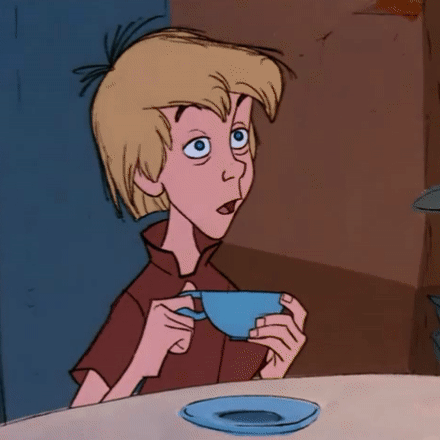
A series stretching out over multiple volumes needs to dose its escalation in a way that future escalations are possible. The Lord of the Rings starts small and builds from a scope as small as The Hobbit towards a finale (or rather multiple finales) that include major battles and resolutions. But if you blow up a Death Star each time, it gets old... leading hack writers to create in the end a fleet of 10,000 Star Destroyers rising from underground of one planet that each has the destructive power of a Death Star. If you can't dose your escalation and scale, that's what you end up with.
So far Kawahara has managed to deliver, but if you look at the release schedule of the Progressive series you'd notice that it took Kawahara a 3 year period to craft book 5/6 (written together) and book 7/8 (same). While it was not the only thing he was doing, The Isolator closes in on a four year hiatus by now, and with horror we can watch on as Kawahara started a new series (Demon's Crest) instead. I personally wonder if it is tiresome to play one-upmanship with oneself. These ever more convoluted escalations aren't needed, but are not the only case in point where such escalation takes place. The same is true for the love story arc. But I will now gloss over it since I enjoy it too much!
Skills that pay the bills
There are many skills that an author needs to craft a satisfying book. I've mentioned the prose, the basic interweaving of description, dialogue, inner monologue. Then there is how you weave necessary exposition into the story. Characters need to be fleshed out and ideally grow and change in some way. Dialogue needs to convey us something about the speaker and seem convincing and true to the character. Descriptions paint a picture of what we are meant to see and hear were we in the world
There needs to be pacing. Good pacing balances action and more quiet passages. It builds suspense and resolves it in a release, over and over. But good pacing also alternates what happens "on screen" by offering us a variety of scenes, not just "battle" and "break," over and over, for example.
Then there is the drama, the misunderstandings, the emotional challenges, the conflicts. How they come about, how they defy resolution initially and how they resolve eventually. And how they are set up - oh, setup is ever so important. A character can die on page 1 and we will care very little, but if a character has been made central to the story and features in its dynamics, if the character leaves a big hole when they go - that's all in the setup. And it pays off so well.
Same for humor. The best kind of humor flows naturally from the characters themselves, their interactions, but it can also come from the situation. But it can also be poorly executed, and boy is anime full of poorly played humor... oh Handyman Saito, how often have you failed me! Not to speak of the downright juvenile. I sometimes wonder what separates some authors from the teenage boys they write for...
If we're talking fantasy or Sci-Fi, you also need to build the world, make it come alive, make it interesting, engaging, and gradually impart its workings on the reader. So it needs to be built and it needs to be conveyed, and the latter needs to balance with the rest of the story.
Even good authors need to learn this - and might publish their mistakes. I personally consider Alicization such. To me, the world was ultimately unlikable and I couldn't fathom why I would care about saving its disgusting society. The story paces poorly - after the protagonists actually get going, they immediately get stuck in a sort of boarding school story that is poorly related to their goal - to save Alice. Completely sidetracked at times, not interesting. Then we get into the Cathedral and it's battle, battle, more battle. Each chapter is homogenous to a fault. And the resolution drags out endlessly... I consider Alicization as a skill-building exercise for the author, but watching the two seasons to finish was a chore and nothing else.
Or take for example The Dresden Files. The stories are well-crafted, but it became soon apparent that every book follows exactly the same template. And each book will resolve one set of problem the character has and replace it with the same amount of new problems, so you never get a feel there is a breathing space for the character. There will be always be someone breathing down his neck, he always will be out of resources, outmatched, and he will still win somehow. And each book escalated over the previous one in exceedingly dubious ways. I just stopped reading.

Oh yes, resolutions! How you get from A to B in a consistent way, how the ending fits the story, how satisfying the ending itself is. Does the ending follow from the forces set up in the story? Is it logical? Does it seem forced or contrived? This goes for any arc, any change in how characters relate to each other, book finales, season finales, or outright finales altogether.
Or what's at stake. Why should we care? Do we care? Are the characters important to us? Do we relate to their suffering? Do their victories feel like victories to us?
Keep improving, not "more of the same"
All of these are skills an author can possess and you will likely find they do differently on some, or there are some of their works where they are still practicing them. Or they get stuck in what they do okay and never improve - which is the worst. Nothing like a "good enough" mindset author to tire of. What I hope for in an author is that they will improve and keep delivering satisfying stories.
Or these series die an ignominious death, if not commercially, then in your own willingness to read them. Piers Anthony crafted a great many really good Xanth novel that I enjoyed in my youth, but eventually he just kept writing them to be formulaic and too full of puns. Yes, the puns played a role in the original books, but they were balanced with the story and the world-building, and the drama, characters, and puzzles were well-crafted. Eventually he just cobbled together books involving a lot of reader-provided puns. Ugh.
As I keep exploring anime, manga, and light novels, I hope to find more of these jewels. More authors - or teams of authors - that keep evolving, keep crafting engaging stories, and keep building their skills. It's so rewarding when they do.
#re: zero#sword art online#sao#grimgar of fantasy and ash#grimgar#writing style#writing skills#uncle from another world
5 notes
·
View notes
Text
Rate That Number:
Right, so, I’m not the sort to karma whore or beg for interaction, but I’ve seen a couple of videos playing the game “Rate That Number”. I wanna play it.
Basically, a hypothetical person is offered on a scale from 1 to 10. There’s some additional information offered as well, with intent to possibly alter that rating based on the person being asked’s preferences. There can be more than on bit of info offered. Maybe a ‘positive’ and a ‘negative’, maybe multiple ‘negatives’, maybe multiple ‘positives.
So, for instance:
“He’s a 9, but his bed is on the floor."
“She’s a 6, and she plays Fortnite.”
“He’s a 3, and he’s a well-loved, non-offensive comedian."
“She’s a 4, but her job’s really well-paying and you get to be a House-Spouse if you want to be.”
“He’s a 9, but he calls his mother mommy, and he’ll accidentally call you by his sibling’s names sometimes.”
“She’s a 10, but she chews her food really loudly - mouth open - and has really bad gas all the time. Not stanky, just really loud.”
Again, I’m not one to beg for interaction, but...
So, hit me up. I’m Male, he/him. No preference for the hypothetical’s gender.
Also, I have no preference in terms of this hypothetical person’s sex. Also, I’m Male, he/him.
#rate that number#send me asks#interact please#don't know how else to do this - so i'm just tagging some fandoms i'm in#tlou#titanfall#minecraft#pokemon#xcom#the grim adventures of billy and mandy#ben 10#haibane renme#serial experiments lain#grimgar of fantasy and ash#youjo senki#star wars sith#motw#monster of the week#full house#monsterfvcker#starcraft#real robot mecha#scooby doo#john constantine#venture bros#helluva boss
10 notes
·
View notes
Photo

Grimgar of Fantasy and Ash Vol.19 (light novel)
69 notes
·
View notes
Note
do you have a favorite isekai?
Grimgar of Fantasy and Ash. It's a nice change of pace from all the "godmode" MCs of a lot of other isekai, and it provides a much more realistic take on the genre. Of course, I'm not saying they have to be realistic, part of the fun is that they aren't, right? But it is nice to see those kinds of takes every once in a while.
Also the art style is pretty unique compared to a lot of the other stuff I watch. It's just a shame that it ended up being so short.
6 notes
·
View notes
Text


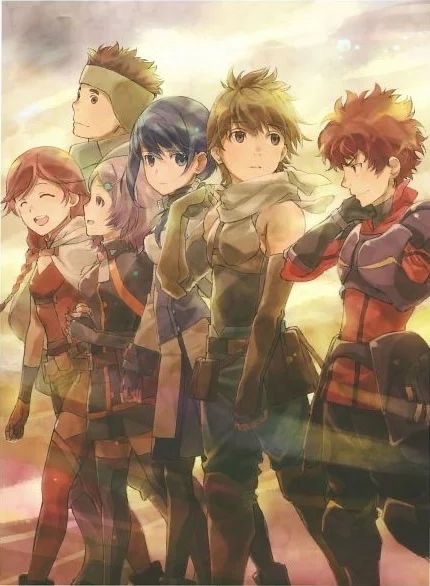
grimgar of fantasy and ash
1 note
·
View note
Audio
“Pest”
by: (K)NoW_NAME (R·O·N)
from: Grimgar of Fantasy and Ash
6 notes
·
View notes
Text
Ok grimgar is a brilliant show, that being said the music taste is kinda eh in some bits, still good tho
1 note
·
View note